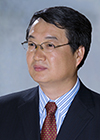Authors:Wang, Jing-Peng; Ban, Xuegang (Jeff); Huang, Hai-Jun
Published in:TRANSPORTATION RESEARCH PART B-METHODOLOGICAL
Abstract:This paper investigates the dynamic ridesharing with the variable-ratio charging compensation scheme (VCS) in morning commute, with the continuous-time point-queue model applied to a single bottleneck. The optimal VCS without imposing road pricing when the ridesharing platform minimizes the disutility or maximizes its profit is analyzed. It is found that the user equilibrium coincides with the system optimum when the platform minimizes the system disutility with VCS, and the corresponding platform's profit is negative with high travel demand. Considering this, the optimal VCS when the platform minimizes the system disutility with zero profit is examined. Moreover, to ensure ridesharing participants commute with no queue, they need to depart at the two tails of the departure time window. Under that case, the optimal VCS are investigated with desirable objectives of the ridesharing platform. The analytical results indicate there should be fewer commuters involved in ridesharing when the platform maximizes its profit compared to that when the platform minimizes the system disutility with zero profit.
Keywords:Dynamic ridesharing; Variable-ratio charging-compensation scheme; Bottleneck congestion; Morning commute
Author:

Hai-Jun Huang is now the university’s vice president, and had served as the executive associate dean of the Graduate School from 2009 to 2015, the dean of the School of Economics and Management from 2007 to 2009. From 2000 to 2004, he was the vice director of the Department of Management Sciences, National Natural Science Foundation of China. He received his PhD in transport operations research from Beihang in 1992. His research interests include road traffic flow models, transport network modeling, travel behavior analysis and congested road-use pricing. He has published more than 150 papers in such international journals as Transportation Research series, OR, TS, etc. In 1998, he got the grant awarded for National Excellent Young Researchers; in 2005, the grant for Innovative Research Groups; in 2011, the national prize for Achievements in Natural Science; in 2012, the Fudan prize for Excellent Research in Management Sciences. In 2011, he was selected as the IAC member of ISTTT.